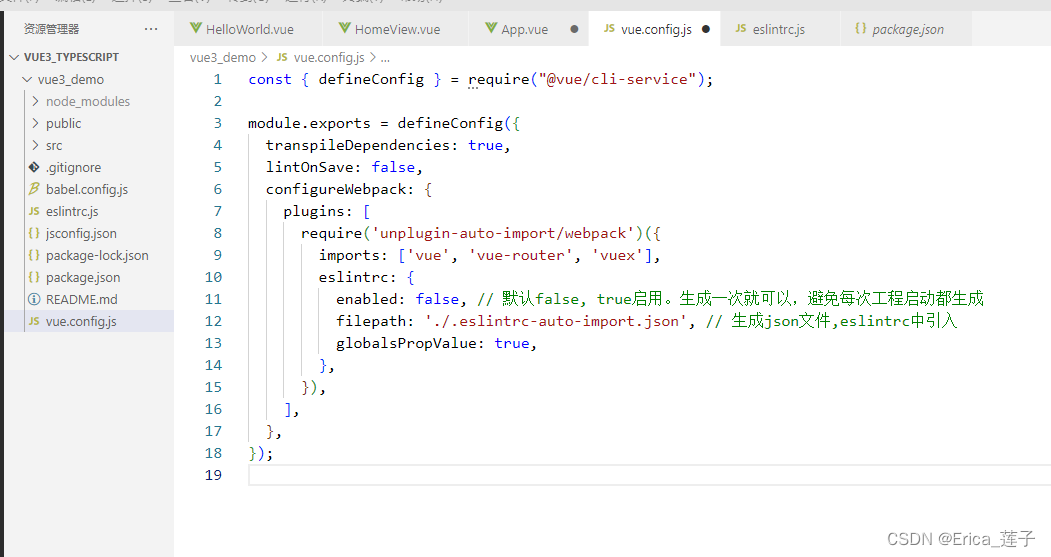<script setup>
import { ref , onMounted} from 'vue';
let obj = ref({
a: 1,
b: 2,
});
let changeObj = ()=>{
console.log(obj)
obj.value.c = 3 //ref写法
}
onMounted(()=>{
console.log(obj)
})
</script>The code inside will be compiled into setup() the content of the component function.
equivalent to
<script>
import { ref } from 'vue';
export default {
setup(){
let obj = ref({
a: 1,
b: 2,
});
let changeObj = ()=>{
console.log(obj)
obj.value.c = 3 //ref写法
}
return {obj,changeObj}
}
mounted() {
console.log(this.obj)
}
}
</script>
Using the syntax sugar plug-in can simplify the import steps
When not in use:
import { computed, ref } from 'vue'
const count = ref(0)
const doubled = computed(() => count.value * 2)when using it:
const count = ref(0)
const doubled = computed(() => count.value * 2)
download
cnpm i unplugin-auto-import --D
Configure according to the configuration of different packaging tools in the official website
Project configuration created by vue-cli:

//vue.config.js
const { defineConfig } = require("@vue/cli-service");
module.exports = defineConfig({
configureWebpack: {
plugins: [
require('unplugin-auto-import/webpack')({
imports: ['vue', 'vue-router', 'vuex'],
eslintrc: {
enabled: false, // 默认false, true启用。生成一次就可以,避免每次工程启动都生成
filepath: './.eslintrc-auto-import.json', // 生成json文件,eslintrc中引入
globalsPropValue: true,
},
}),
],
},
});